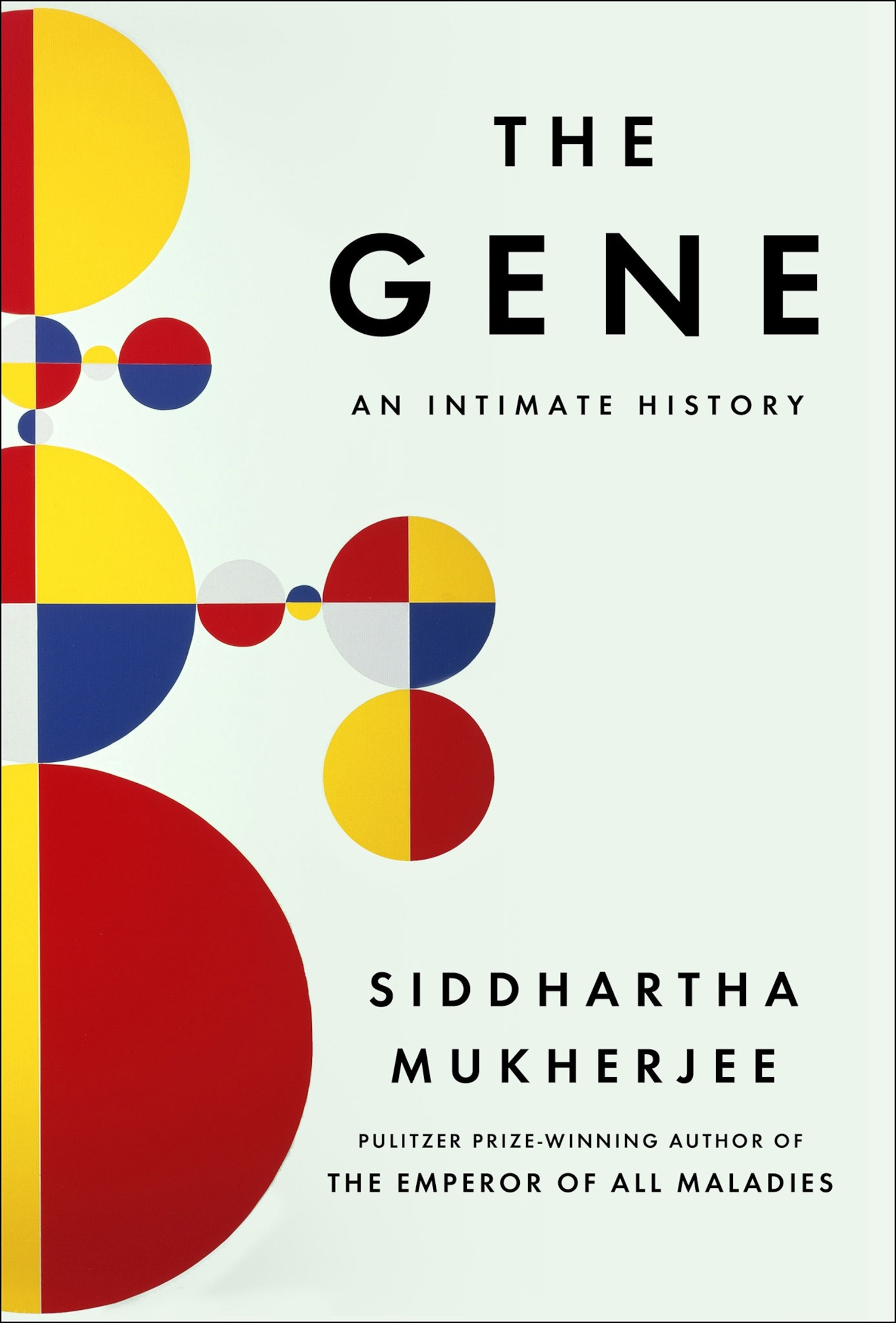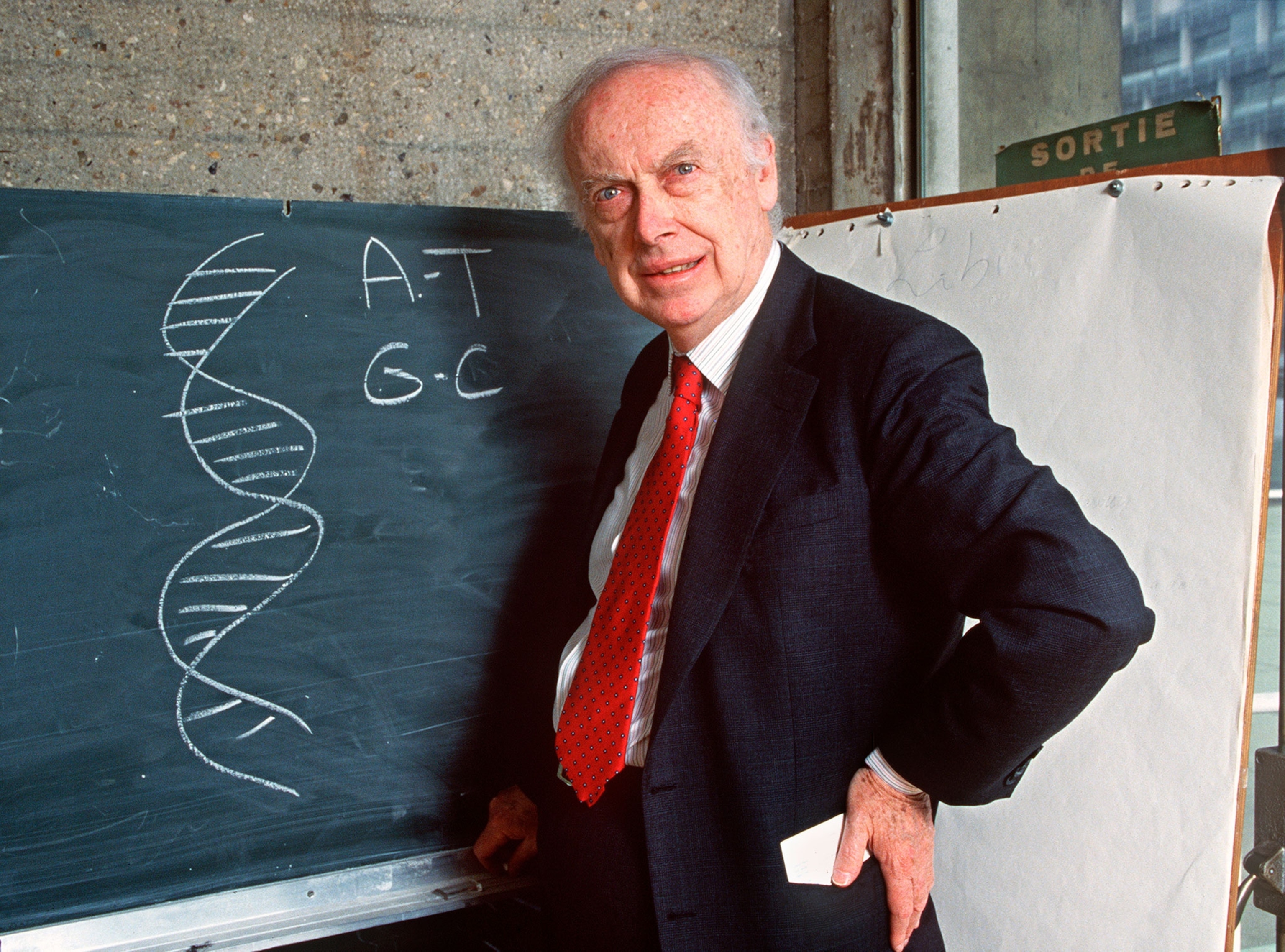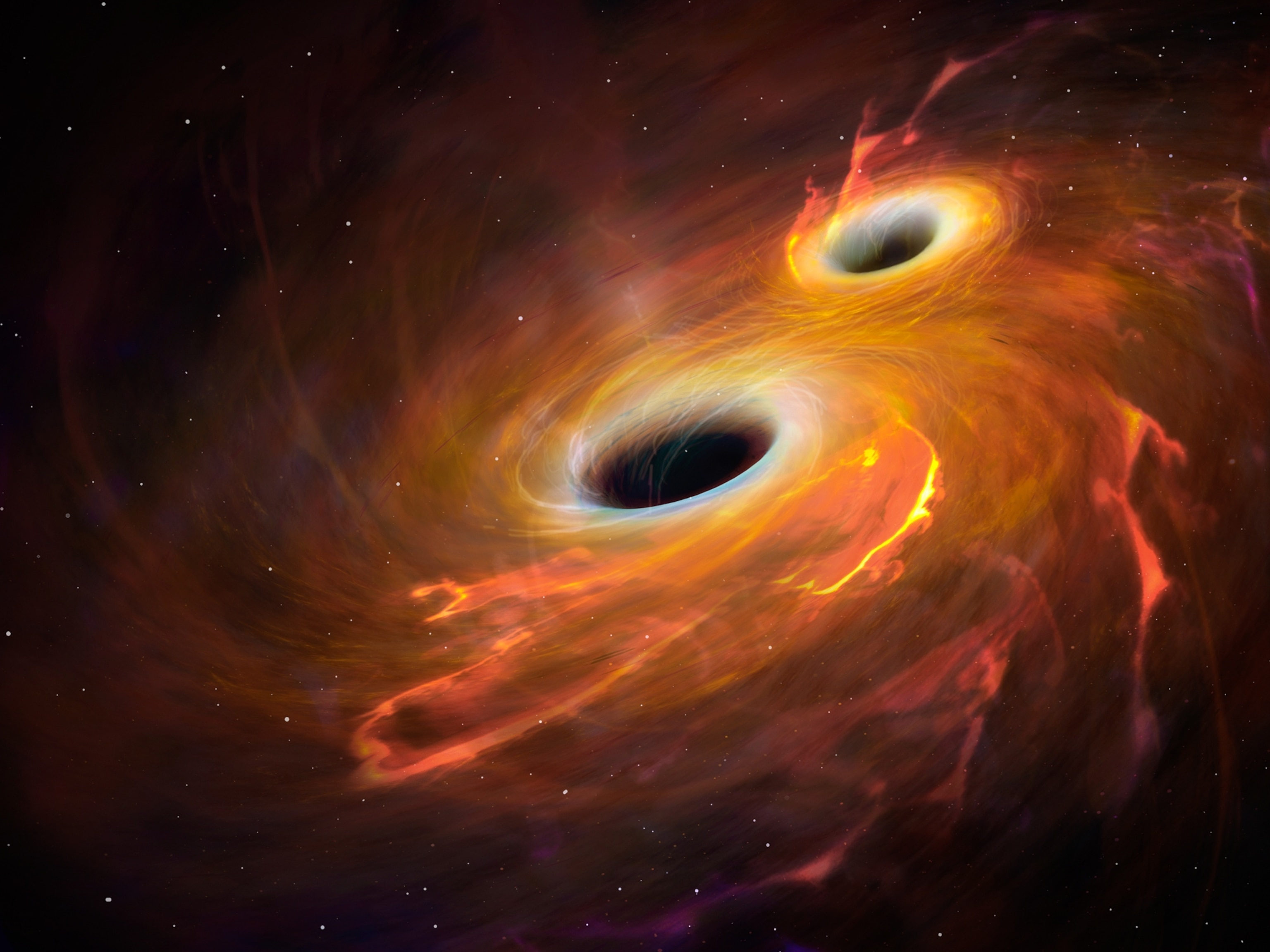
The Gene: Science's Most Powerful—and Dangerous—Idea
Genes influence who we are—and now we can manipulate them.
The gene is “one of the most powerful and dangerous ideas in the history of science,” argues Siddhartha Mukherjee in The Gene: An Intimate History. Since its discovery by Gregor Mendel, an obscure Moravian monk, the gene has been both a force for good and ill. In the 1930s, the Nazis exploited the pseudoscience of eugenics as a prelude to the Holocaust. Today, gene therapy holds out the hope of eradicating hereditary conditions like Huntington’s disease and even psychological disturbances, such as schizophrenia. [See how the DNA revolution is giving us unprecedented power.]
National Geographic caught up with the author as he was driving across the Williamsburg Bridge in New York City. Mukherjee, a professor of medicine at Columbia University who also wrote the Pulitzer Prize-winning The Emperor of All Maladies about cancer, explained why the book has deep personal roots, how the United States eagerly adopted the pseudoscience of eugenics, and why allowing individuals to make decisions about altering the genetic makeup of their children may be a dangerous thing to do.

Your book’s subtitle is “An Intimate History.” Can you talk about the personal inspiration behind the story of the gene?
I’ve been thinking about this book for a very long time. Even before I had written my book on cancer, I had thought about the perennial question of why we are like and unlike each other. In my particular case, the question revolved around mental illness. Why were two uncles and one cousin of my family affected while the rest of us didn’t seem to be? That question was very much part of the background of my childhood and adolescence. My uncle Jagu, who lived with us, was provisionally diagnosed with a mental disease, which was called schizophrenia, but died before a lot of the terminology became clear.
A host of studies were being published in the 2000s linking schizophrenia and bipolar disorder, suggesting that there are strong familial and potentially genetic links between these mental disorders. Added to that was the question why, in crisscrossing family histories, some members are affected and others not. In other words, how did genes intercept with environment and chance to create powerful influences on human form and fate? That’s the central question in the book—and it’s also encapsulated in the history of my family.
You call the gene, “one of the most powerful and dangerous ideas in the history of science.” Unpack that thought for us.
Powerful because of the question of heredity and identity, which is a central question that animates this book. What makes us who we are and how do we transmit that information? To what extent does heredity control our identity? These are among the most powerful questions we ask ourselves. They are also among the most dangerous because they raise the idea of what we can control and manipulate. What if you were given the opportunity to change human identity by changing human genes or even know someone’s future by knowing their genetic components? We’ve seen in the history of eugenics how genetics can be distorted by political forces and then can become very dangerous. The part of the book that focuses on eugenics is a series of incredibly important moral and social lessons because we learn how genes can be misused.
We both have identical twins in our lives: your mother and aunt, and my elder brothers, are identical twins. Why are twins so important in gene research?
Twins represent a fascinating natural experiment. Aside from a few exceptions, their genomes are identical. So, how they turn out in the world, what diseases they get exposed to, what aspects of self they share, is a way to solve what aspects of human nature are influenced by genes versus not. It’s very important to remember that I’m using the word "influence" because, obviously, identical twins are not identical. Their lives evolve differently, which reminds us that biology is not destiny. Biology has strong influences on destiny. But it’s not identical to destiny. In the most extreme form, even if you have exactly the same genome, you don’t behave as an identical clone. You have a unique self.

The pseudoscience of eugenics reached its apotheosis in Nazi Germany. But I think our readers will be shocked to discover that much of the groundwork was actually done in America. Tell us about Carrie Buck.
I dedicate the book to Carrie Buck because she was one of the first women in the U.S. to be sterilized by court mandate. She was suspected of having hereditary mental illness and, in the 1920s, in order to cleanse the population of her genes, was confined to a place called the Virginia State Colony. One of the superintendents of the colony was a man named Albert Priddy, who was one of the great proponents of eugenics through selective sterilization. Priddy applied to the Supreme Court, and Oliver Wendell Homes’ very important judgment said, “Three generations of imbeciles are enough,” and thereby mandated the sterilization of Carrie Buck. We now know that the chances of Carrie Buck having the kind of hereditary mental illness Priddy was trying to eradicate by sterilization were actually pretty slim.
The word genocide shares its root with gene. Describe the methods used by Hitler’s eugenicists and how they prefigured the Holocaust.
In the 1920s to '40s, the Nazi Party launches the racial hygiene movement to try and ensure they cleanse the human race of genetic infirmaries. They try to identify anyone who has a suspected hereditary infirmity: the deaf, the blind, or those with congenital illnesses of various sorts. There’s a whole series of propaganda films, in which they try to describe how horrible the lives of these people can be, in order to justify that the right thing to do is to exterminate them. This forms the training ground for the much wider extermination program of the Holocaust. By the 1930s, Jewish men and women are already disproportionately being targeted as part of this racial hygiene movement.

The great quantum leap forward in the story of the gene was DNA, which James Watson, co-discoverer of the double helix, called “the Rosetta stone for unraveling the true secret of life.” Why was it so important?
In the 1910s and 1920s, people had thought about what was carrying the code to build organisms and to repair and maintain organisms. But they didn’t know what chemical form it was in. Thomas Morgan, the great fruit fly biologist, had, along with others, understood that genetic information was carried in chromosomes. But he didn’t know what chemical carried it, why the chemical carried it, and how a chemical could carry all this information. So the hunt was to try to find the chemical that carried this information. If you could identify that chemical and manipulate or move it from one organism to another organism, you could potentially change biological, hereditary information.
The discovery that it was DNA that carried genetic information was an enormous surprise. It was done by Oswald Avery and his colleagues at Rockefeller University in the 1940s. Then the race began to try to solve the structure. How on Earth could DNA carry information to build you and me? That was solved by discovering the structure of DNA. Later, it became clear that the structure allowed DNA to carry information in this unbelievable form: the sequence A, C, T, G, G, C, G, A, and so forth. Four letters carrying the information that allows humans to be built. And this ultimately led to the Human Genome Project.
At one point in the movie The Help, an African-American maid named Aibee says, “We’s the same. Just a different color.” Tell us about Mitochondrial Eve.
Mitochondrial Eve is a fascinating concept. The idea is that the genetic information we inherit comes from our fathers and mothers, one chromosome from each. There’s an exception to this, though: an energy-making factory in our cells, which also has genetic information. But that genetic information comes exclusively from your mother. If you look at that mitochondrial information, yours came from your mother, hers came from her mother, and so forth. There is a matrilineal lineage. Humans, as a species, are quite young, only about 200,000 years old. And if you track mitochondrial DNA back to one mother, then to the next mother and the next, we can trace that genetic information to one single woman, who lived in some part of Africa. She was not the only woman alive at that time. But she is the one that all our lineages converge on. That’s why she’s called Mitochondrial Eve.

One of the most controversial books of recent decades was The Bell Curve. What was it trying to prove—and why was it wrong?
It was trying to understand the underpinnings of human intelligence and the extent to which human genes can influence it. If you look carefully, genes do influence one notion we have considered for human intelligence: the IQ test. It’s one test for human intelligence. But The Bell Curve tries to make the argument that, not only was there a genetic influence on IQ but, more than that, if you measured intelligence across various “races”—and I use the word races in inverted quotes because these are handed down to us from the 18th and 19th centuries—you would find that Asians and Caucasians scored higher on these tests for intelligence by about 10 to 15 points.
Why is it wrong? The most important reason is that the construction of an IQ test is itself an idea that has been brought into question since the 1990s. We now know that if you subgroup the IQ testing into subtests, white people score higher in some parts of the test and black people score higher in other parts of the test. The way you change the weights and balances in the test determines the ultimate score.
What do genes tell us about sexual identity? Is there a “gay gene”?
We know that genetics has a powerful influence on sexual identity. We also know that there is no single gene that determines most sexual identity. Much remains undiscovered about the exact genes that influence sexual identity but we know that there is an influence, based on twin studies. There is no such thing as a “gay gene,” though. There may be multiple genes that interact with environment to produce different variants in human sexual identity. But no single gene has been identified as the “gay gene.”
We can now alter the human genome at will. What are the potential benefits and dangers of human genetic engineering?
More and more, we are sequencing the genome of eggs and embryos and beginning to use technology that will potentially allow us to alter the human genome. The potential benefit might be to eliminate diseases with strong genetic components, like Huntington's disease.
The dangers are that there will be unintended consequences. All of a sudden we may find ourselves making decisions about which human genes are more preferable than others. In doing so, we risk making wrong decisions about what variations are and are not allowed to exist. Though human genome technologies are highly regulated, it is unlikely that there’s going to be a government mandate that says, “You are only allowed to have this kind of baby.” And when individuals make that decision it is still, ultimately, a eugenic decision.
What amazes you most about the story of the gene, Siddhartha?
The most amazing thing is how much of this is unknown to the larger public. It was a discovery that I made, of how much of the story of social eugenics is unknown; how much we know about genes and genomes today; and the extent to which we are on the verge of being able to change the human genome in ways that turned out to be surprisingly simple. This is a story I was not aware of. I was surprised—and amazed—by it.







